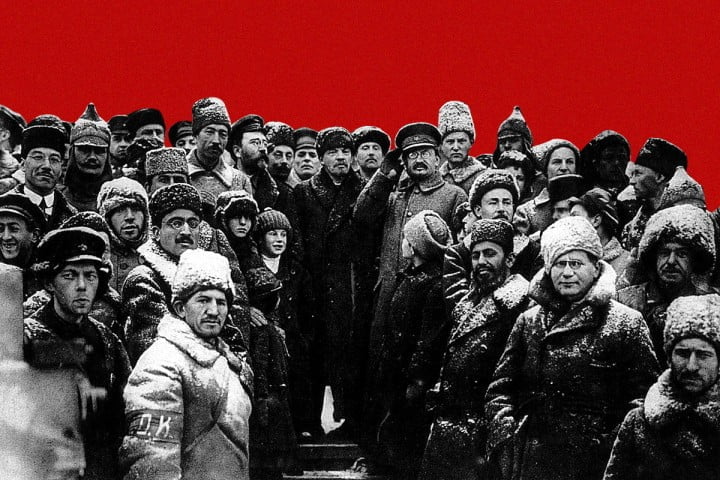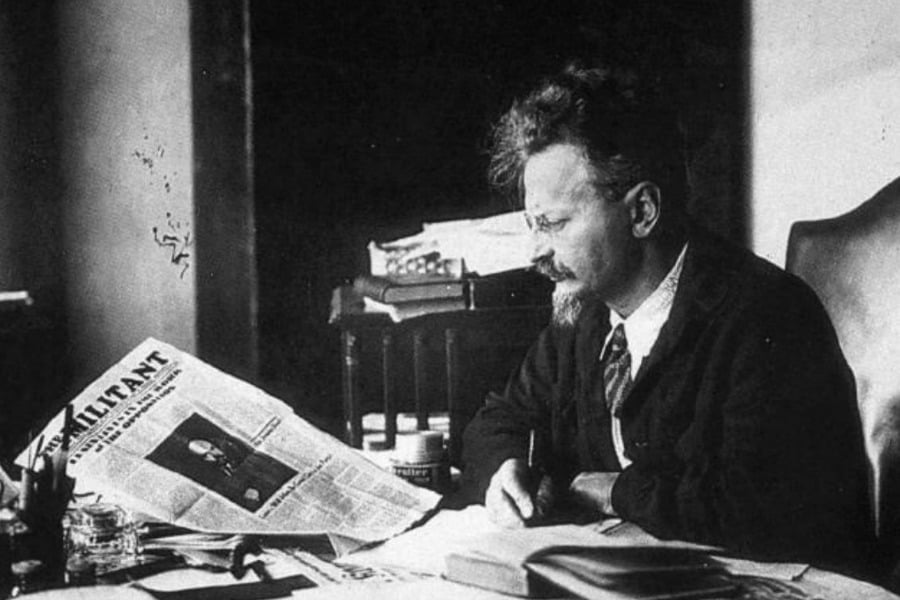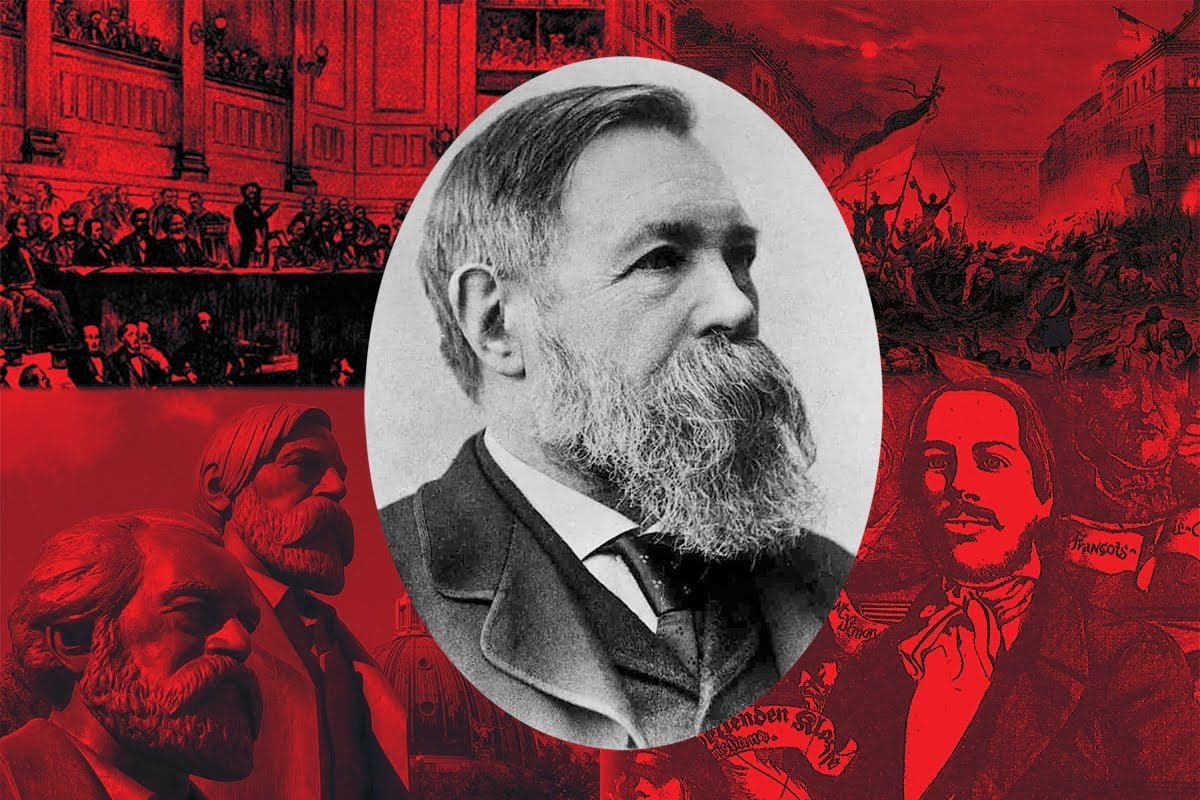Written in 1920, in the midst of the Russian Civil War, with the Bolsheviks in power, “Left-Wing” Communism: An Infantile Disorder, was written by Lenin as a theoretical appeal to communists internationally, on whom the Russian Revolution was depending, to do what was required to seize and retain power.
Not only did Lenin have an uncontested mind for theory, but having himself led the Russian working class to power, he had the unique experience from which to draw the lessons which he spells out in this work.
In a position of life-and-death struggle, civil war, and barbarism it is understandable that Lenin saw the need to dismiss the stubborn principles and rigid tactics of the so called “left-wing” communists. He instead called for theoretical firmness but flexible tactics in order to deal with the brutal reality that he and the Russian people faced.
Chapter 1: In What Sense We Can speak of the International Significance of the Russian Revolution
In the first chapter Lenin draws attention to the influence that the proletarian revolution in Russia of October, 1917, can have on the world proletariat.
He states that this seizure of power by the working class for the first time in history has revealed to the workers of the world the future of their struggle, and the importance of Bolshevism to achieve it.
He quotes an astute prediction by Karl Kautsky made in 1902, a German Marxist historian, who in his particular criticisms of the Bolsheviks revealed himself as Menshevik in the decisive hour. Kautsky recognises Russia as a developing hub of Marxism and “a source of revolutionary energy”, predicting that a revolution in Russia may occur to show the path to progress for Western Europe.
As he does throughout this book, Lenin here defends the Bolsheviks against their critics by revealing the latter’s hypocrisy and contradictions.
Chapter 2: An Essential Condition of the Bolsheviks’ Success
The 2nd chapter is a justification of the necessity of a Bolshevik organisation, and an analysis of the way in which it developed in Russia.
He explains that a disciplined leadership and a Bolshevik theory are needed, because the dictatorship of the proletariat is fundamentally needed. Lenin concisely and clearly explains that in such a “life-and-death struggle”, without these conditions, a proletarian revolution cannot be secured against capitalist reaction.
Study questions:
- Why is the dictatorship of the proletariat necessary?
- Why is a Bolshevik centralisation necessary to keep the proletariat in power?
- How and why were the Bolsheviks able to develop in Russia?
Chapter 3: The Principle Stages in the History of Bolshevism
Chapter 3 is a short overview of the various stages of political development in Russia that led up to the October Revolution of 1917. Lenin briefly analyses how the context of these events allowed the Bolsheviks to lead the proletariat to overthrow capitalism.
Study questions:
- How did the political tendency of Bolshevism develop in Russia?
- What influence did the revolution of 1905, and its defeat, have on the consciousness of the masses and of the revolutionary parties?
- What influence did the First World War have on the consciousness of the masses and of the revolutionary parties?
- How did the February revolution and the events that followed bring the Bolsheviks to the fore?
Chapter 4: The Struggle against Enemies within the Working-Class Movement Helped Bolshevism Develop, Gain Strength, and Become “Steeled”
In this chapter, having already established the need for the dictatorship of the proletariat, Lenin begins his polemic against the various tendencies of ‘left-wing communism’ which make it impossible to meet this need.
Chapter 4 focuses in particular on the importance of combining ‘legal and illegal, parliamentary and non-parliamentary forms of struggle’, and the importance of flexible tactics. He rejects the stance taken by the anarchists and so called ‘left’ communists in their stubborn refusal to adapt their tactics to the concrete reality on the basis of their abstract ‘principles’.
Lenin talks openly of the occasional necessity of splits and expulsions in workers’ parties in order to refine the party’s theory and maintain it as an effective tool of struggle.
Study questions:
- Why was as a boycott of parliament an effective position to take in 1905 but not in 1908-1914?
- What is Lenin’s position on the question of ‘compromises’?
a) with respect to the treaty of ‘Brest-Litovsk’.
b) with respect to the general approach that should be taken by a revolutionary leadership? (This question is covered in more detail in chapter 8).
Chapter 5: “Left-Wing” Communism in Germany. The Leaders, the Party, the Class, the Masses
Lenin dismisses the confused fretting of the German Communist Party over ‘the dictatorship of the party’ as opposed to ‘the dictatorship of the proletarian class’. He argues that the political struggle can and will only ever be a generalisation of the entirety of the class struggle, and that the formation of parties is the expression of historical necessity. The focus must be on the class nature of the party, and maintaining the correct theory.
The latter part of the chapter describes the magnitude of the task that revolutions inevitably face, and that a party is required to maintain the workers’ control of industry and of government, against the bourgeoisie – domestic and foreign.
Lenin explains that revolutionary Russia is only in a transitional phase from capitalism to the lower stage of communism (socialism), in which the bourgeoisie and its tendencies have not yet been dissolved into the sphere of communist production and culture.
Study questions:
- What was the position of the “left-wing” communists in the German Communist Party on the question of trade unions, “workers’ unions” and parliaments?
- What is meant by the ‘labour aristocracy’?
- How does the labour aristocracy cause ‘divergence between “leaders” and “masses” ’?
- What is the party’s role in the transition from capitalism to socialism… ? a) … in general b) … in relation to small commodity-producers
Chapter 6: Should Revolutionaries work in Reactionary Trade Unions?
Lenin points out that because of the Russian workers’ long period of struggle, and their personal role in the establishment of their mass organisations, they are well aware of the need for strong and decisive leadership, unlike the German ‘opposition on principle’ and the ‘Left-Wing’ Communists. He opposes the ‘ultra-left’’s tendency to isolate themselves from the masses with “childishly ‘left’ slogans” and by rejecting the mass organisations (i.e. trade unions).
Study questions:
- What is the relationship between the workers party and the trade unions?
- The German Left-Wing Communists call for abandoning the reactionary trade unions and establishing workers unions. Why does Lenin oppose this approach?
- Why does Lenin oppose the policy of only organising with the masses who “recognise the soviet system and the dictatorship of the proletariat”?
Chapter 7: Should We Participate in Bourgeois Parliaments?
Lenin once again deconstructs the arguments of the German and then the Dutch “Lefts”, who oppose participation in bourgeois parliaments. He points out that many of the ultra-lefts’ positions are based on incorrect assertions such as the assertion by the German Communists that “all parliamentary forms of struggle have become politically obsolete”. Lenin debunks such false assertions and goes on to explain why participation in bourgeois parliaments can be entirely necessary.
Lenin also points out that in their abstract rejection of all participation in parliaments, the “left-wing” communists have failed to learn from the experience of their Russian comrades. He argues that is to completely miss the point of forming a communist international.
Study questions:
- What are the main contradictions highlighted by Lenin in the German “Lefts” objections to participating in parliaments?
- What does Lenin mean when he talks about “what is obsolete to us” vs “what is obsolete to the masses”?
- How can participating in bourgeois parliaments facilitate their dissolution?
- Why does Lenin argue that it is even more difficult to break with parliamentary politics in Western Europe than it was in Russia?
- Why does this mean that it is even more important for communists to participate in them?
Chapter 8: No Compromises?
In this chapter, Lenin implores the reader to recognise how fragile the proletarian revolution is against capitalist counter-revolution. He describes how vital it is that the leadership of the proletariat are prepared to adapt to the weaknesses of their class enemy, who will be prepared, in turn, to do whatever it takes to destroy their class enemy; the proletariat. It is from this standpoint that Lenin argues that compromises should be weighed-up on a case by case basis, for the benefit of the class struggle as a whole.
“Our theory is not a dogma, but a guide to action”
Lenin explains that the German Communists, who oppose any coalition with the Left Social-Democrats are making a mistake, as such ‘compromises’ are necessary steps in the raising of the class consciousness of the proletarians and semi-proletarians, who are diverse in their political tendencies and their prejudices.
Study questions:
- How does Lenin distinguish between compromises enforced by ‘objective conditions’ and compromises based on opportunism?
- Why is the Proletariat weaker than the Bourgeoisie, even after its conquest of power?
- Why does Lenin say that their position on The Treaty of Versailles should be dependent on the “Soviet movement in Germany”?
Chapter 9: “Left-Wing” Communism in Great Britain
Lenin analyses an article by Sylvia Pankhurst of the Workers Socialist Federation in Great Britain. Pankhurst and her political party oppose affiliation to the Labour Party and oppose any participation in parliamentarianism on the grounds of “keeping their doctrine pure” and “not compromising… not stopping or turning etc…” despite recognising that the Labour Party has the support of the vast majority of workers.
Lenin praises her revolutionary spirit, but takes the opposite tactical position. He argues that since the reformist leaders of the Labour party have such significant support, the communists must work within the Labour Party, to raise the class consciousness of the workers who must experience first-hand the bankruptcy of the reformist leaders.
He also argues that the Communists should offer a coalition with all the workers’ parties, especially the Labour Party, to bring down the Liberals and Conservatives. This would show the Communists to be non-sectarian and would promote the unity of all workers against the parties of the bourgeoisie. This is an essential early step towards class-consciousness for the working class.
Similar lessons should be drawn today (2018), as organisations such as the Socialist Party and the Socialist Workers’ Party make the same mistake. The Labour Party has once again formed a popular left-wing (yet of course reformist) opposition to a crisis ridden Conservative Government, and is under attack from the right wing. The so called “left-wing” parties however, while calling for unity against the right, insist on their independence and even on standing against the Labour Party.
Study questions:
- What was the main barrier to the formation of a Communist Party in Great Britain?
- What are Lenin’s main disagreements with Sylvia Pankhurst?
- Lenin quotes the British Liberal leader, Lloyd George. What does Lloyd George mean when he describes Britain as “top-heavy”?
- What approach does Lenin propose the communists take towards forming a coalition/bloc with the Labour Party in Great Britain?
- What would be the historical role of the communists forming a bloc with the Hendersons and Snowdens of the Labour Party?
Chapter 10: Several Conclusions
Study questions:
- What does Lenin say are the first and second historical objectives with respect to the vanguard of the proletariat?
- What are the 3 main conditions that Lenin says must be present for the time to be ripe for revolution?
- What does Lenin have to say about the use of different methods of struggle?
- What does Lenin have to say about the use of illegal forms of struggle?
- What effect does Lenin say that the Russian Revolution has had on the world bourgeoisie?
Appendix
The appendix to this polemic is equally as important as the Conclusions chapter before it. Here Lenin takes a closer look at some key lessons to take from the struggle in Germany and Italy. He also gives his best summary of the importance of this work, and the importance of the struggle against “Left-Wing” doctrinairism.






